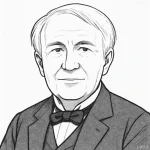“That terrible mood of depression of whether it’s any good or not is what is known as The Artist’s Reward.”

- July 21, 1899 – July 2, 1961
- American
- Novelist, poet, journalist
table of contents
Quote
“That terrible mood of depression of whether it’s any good or not is what is known as The Artist’s Reward.”
Explanation
In this quote, Hemingway captures the self-doubt and inner turmoil that many artists face during the creative process. The “terrible mood of depression” refers to the emotional state that often accompanies the act of creation—when an artist questions the value or quality of their work. This feeling is, for Hemingway, part of the price of being an artist. The “reward” of this mood is not praise or success, but the emotional and psychological cost that comes with the struggle to create something meaningful. The uncertainty of whether one’s work is truly good or worthy is a constant companion for those involved in creative endeavors, suggesting that self-doubt is an intrinsic part of the artist’s journey. In this way, the “reward” is not recognition or external validation but the mental and emotional toll of constantly grappling with one’s work.
Hemingway himself often dealt with this sense of insecurity and anxiety about his writing. Despite his success, he was known for his perfectionism and his constant revisions, always questioning whether he had achieved the best possible version of his work. This quote suggests that for Hemingway, creating art was not just about producing something but about confronting the emotional struggles that come with the pursuit of perfection, authenticity, and meaning. His own sense of insecurity fueled his relentless pursuit of excellence in his writing, which, in turn, often left him feeling as though his work was never truly finished or worthy.
In the modern context, this quote can resonate with anyone engaged in creative work—whether writing, art, music, or even entrepreneurship. The self-doubt and uncertainty about the quality or value of one’s work is something many creatives experience, especially when they push themselves to create something authentic or innovative. Hemingway’s words serve as a reminder that self-doubt is a natural and even necessary part of the process, not a sign of failure. It encourages creators to embrace the emotional struggles they face and recognize them as part of the growth and dedication required to pursue any artistic endeavor. The artist’s reward, then, is not in the recognition of their work, but in the honesty and perseverance they bring to the creative process, even when they feel unsure of their success.
Would you like to share your impressions or related stories about this quote in the comments section?


